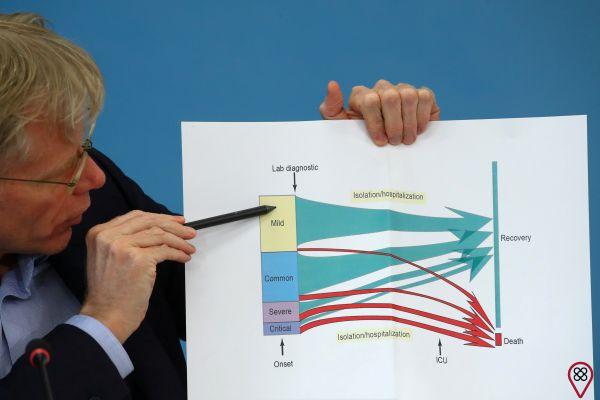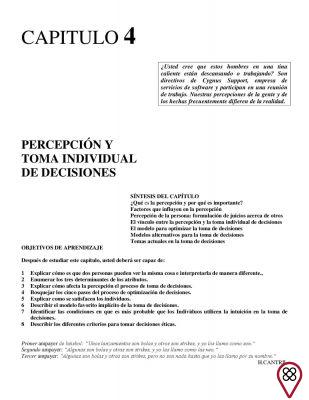Think: when you organize your daily tasks and realize that for that day there is only one thing to be done, do this work in a short time or take advantage of the rest of the day to do it in a slow and time-consuming way, extending the task to the next rest of the whole day?
If you are the type of person who takes all day to complete a task that would take a few hours, but at the same time is able to accomplish several tasks in a single day at other times, know that you are not alone.
Parkinson's Law, first published in 1955 in The Economist by historian and researcher Cyril Northcote Parkinson, talks about exactly how the time it takes to accomplish tasks varies depending on the rest of our day and how important we are to it. at that time for a specific purpose.
Eg suppose that today you have decided to dedicate the day to cleaning the bathroom and organizing your room. The two tasks together could be accomplished in two hours. However, as you don't have anything else scheduled for the day, you prefer to do it calmly, finding other small activities between tasks, such as cooking, watching television, browsing the internet and so on.
 But yesterday you had several college assignments, needed to go to the bank and also had a dentist appointment. Incredibly, you managed to handle everything, organizing your schedules and strictly following the time allotted for each task.
But yesterday you had several college assignments, needed to go to the bank and also had a dentist appointment. Incredibly, you managed to handle everything, organizing your schedules and strictly following the time allotted for each task.
Basically, that's what Parkinson's Law is all about. As its creator said, “the work expands in order to fill the time available for its realization”. When we delimit a exact time for each job to be carried out, whether urgent or not, we are able to better organize our routine.
If we leave the time for its realization free, the tendency is to use all the free time we have. So, if we have all day free, it will take us all day to do the only task that we would need to do and that, in reality, could be done in 30 minutes, for example.
Humans are like this: even the simplest activities that take less time can take a day or more to complete – it all depends on how much free time you have.
That's why the Parkinson's Law says that the busiest people should be your first options when you need to delimit new tasks, because these people have the ability to organize their tasks according to their needs and possibilities.
One task or twenty tasks can take the same 24 hours to complete. In other words, free time doesn't matter. It matters, however, the effectiveness of the performer in that task, according to the time that it really demands.
In practice, an example: one of your employees has three hours available and the other employee has only half an hour free. If a task takes only half an hour to complete, both are able to do it, but it will probably be your busiest employee who will give you the result in 30 minutes – the other will most likely take two hours to complete.
The more free time, the more distractions take over your mind. So, if you are having difficulty meeting deadlines or performing all your tasks with excellence, even though you have plenty of free time, try putting the principles of Parkinson's Law into practice.
Create urgency! Even if your tasks are not urgent, create the emergency feature so that you have no choice and need to start the activity as soon as possible. That way, you avoid procrastinating or getting distracted during the process.
Organize your day the smart way! This means putting tasks that can be completed faster at the front of the queue. Doing so will bring excitement to you, who will see the objectives being completed. If you start with the hardest, it will take you a while to see results and you will probably feel unmotivated to continue at the same pace.
Do not stop! Did you lack creativity (or anything else) to finish the task you started? Jump to the next one until you get what you need to complete the previous one. Standing still will cause you to lose your rhythm, likely losing focus – consequently, your goals will also be scattered.
You deserve to rest! Parkinson's Law tells you to put activities into whatever spare time you have, which means considering relaxing and resting as activities too. That is, do not understand this theory as something that says to work all day. Everyone needs to rest, needs free time, needs to have fun with the family, or even do nothing.
The focus, in this case, is to be organized in such a way that you don't leave time unscheduled in your schedule, because that will likely make your tasks for the day extend into that free time - which, in the end, will make you you don't even have quality time to relax.
So, what are you waiting for? Organize your schedule. Redo your schedules and set your daily goal goals. Make better use of your time. Remember that we all have 24 hours a day to live, but some make it seem like 48 hours, while others, however, seem to live only 12 hours a day, as they manage to accomplish much less.
Text written by Giovanna Frugis from the Eu Sem Fronteiras Team.

























